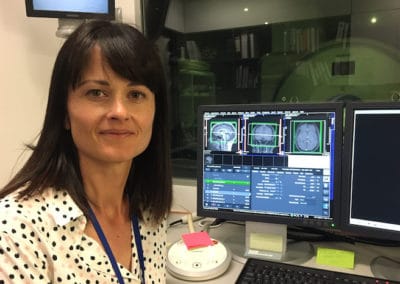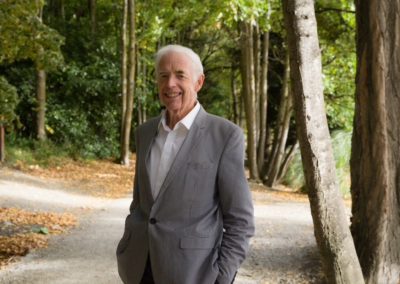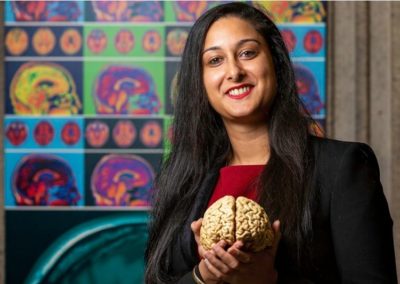Brain Research New Zealand (BRNZ) is very interested in addressing a number of brain health-related issues arising from the terrible pandemic that has spread across the globe. Even though New Zealand has been relatively spared, nonetheless ~2000 people have been infected. The short- and long-term consequences of this on the individuals, their whānau, the health system and relevant community organisations is not at all well understood. According, in this category of funding, projects had to address at least one of the following four areas:
- The impact of COVID-19 on mental health and wellbeing of older Māori and Pacific communities.
- The effectiveness of community health messaging around the pandemic for minority communities and/or older New Zealanders.
- The “Digital Divide” and/or role of telehealth during the lockdown periods for older New Zealanders.
- The short- and long-term neurological and well-being consequences of COVID-19 on people who contracted the disease within NZ. (NB. proposals in this area should state how patient data will be accessed).
We are very pleased to be funding the following projects.
Title: Impact of COVID-19 on the health and psychosocial status of vulnerable older Māori and Pacific people living in the community and aged residential care
Lead Investigator: Gary Cheung, Senior Lecturer and Old Age Psychiatrist, University of Auckland
Summary: Older adults and especially older Māori and Pacific populations are the most at-risk group for COVID-19 infection. Self-isolation and lockdown restrictions are likely to affect both formal and informal care, which could lead to loneliness, depression, accelerated functional and cognitive decline, and falls. interRAI is a comprehensive geriatric assessment mandated for all older New Zealanders assessed for publicly funded home support services and aged residential care. Family involvement is particularly important for Māori and Pacific people who are generally inclusive and have a strong obligation to care for others. Therefore, COVID-19 self-isolation and strict visiting policies in aged residential care could have a larger impact on older Māori and Pacific people. The aim of this study is to investigate the impact of COVID-19 on the health and psychosocial well-being amongst older Māori and Pacific people who have had an interRAI assessment in the year after COVID-19.
Title: Do digital devices and telehealth have a future role in supporting older adults with dementia in Aotearoa? A qualitative study based on experiences during COVID-19
Lead Investigator: Gary Cheung, Senior Lecturer and Old Age Psychiatrist, University of Auckland
Summary: Telehealth has been gaining increasing interest over the past months since the COVID-19 infection required countries to go into total lockdown. The sudden adaption of lockdown measures changed the way we access health services and support networks. Healthcare services such as outpatient clinics, visiting the GP as well as community support services including Alzheimers/Dementia organisations had to work in different ways or be suspended. The withdrawal of these services during COVID-19 is likely to have a significant impact on people with dementia and their families. Therefore, supporting older adults with dementia and maintaining their well-being during COVID-19 has become a priority. Even through digital devices such as smart phones, tablets, smart home systems, robots and virtual reality have been used in dementia care delivery, it is unclear how Maori and non-Maori people with MCI and dementia and their supporters engage and navigate digital technology. We plan to interview people with MCI and kaumātua/kuia living in the community to find out their experiences and views on technology-based interventions to understand better what are the drivers and barriers to using technology. Closing the digital divide will provide opportunities ensuring both Māori and non-Māori with cognitive impairment and dementia to have better access to digital devices and telehealth, which could be used to provide health and social services during the current COVID-19 (or a similar pandemic in the future) and beyond for people with physical disabilities, reduced mobility, no transport or living rurally.
Title: Do COVID-19 ‘long haulers’ have biochemical and physiological changes seen in Myalgic Encephalomyelitis/ Chronic Fatigue Syndrome (ME/CFS)?
Lead Investigator: Emeritus Professor Warren Tate, University of Otago, with General Practitioner Dr Rosamund Vallings
Summary: A concerning development from the COVID-19 pandemic is the number of individuals that show prolonged debilitating symptoms long after the expected recovery time to normal health. Called ‘long COVID’, an estimated 30% of ‘recovered’ COVID-19 patients report ongoing symptoms, with many unable to return to work or perform physically or mentally taxing activities. With over 63 million cases of COVID-19 currently recorded and the numbers still rising rapidly, this is a concerning statistic and an urgent matter for public health. Many of the symptoms reported by long COVID patients, particularly the persistent fatigue and ‘brain fog’, are characteristic of another long-term debilitating disease, Myalgic Encephalomyelitis/Chronic Fatigue Syndrome (ME/CFS), that often arises after infectious disease outbreaks. Using cutting edge analytical techniques including mass spectrometry to profile the immune cell proteins, and specialised sequencing technology to derive sites of DNA methylation, we plan to compare the molecular profiles of long COVID-19 patients with those of ME/CFS and healthy controls. We have very recently identified specific molecular changes characteristic of ME/CFS patients that allow us to better understand the systemic disruptions occurring in patients. This has highlighted abnormal regulation of energy production and oxidative stress, and abnormal neurological activity of the brain and the nervous system. By comparing the molecular similarities or differences of long COVID to ME/CFS we can better understand the underlying pathophysiology of these long COVID patients, and suggest potential therapeutic interventions that might be applied based on our understanding of ME/CFS. This will be achieved by recruiting a small cohort of 5 long COVID-19 patients in the practice of our collaborating physician Dr Rosamund Vallings, and, in combination with cohorts of 5 ME/CFS patients and 5 matched healthy controls, we will perform a thorough molecular analysis based on in-depth strict principles of precision or personalised medicine.
Brain Research New Zealand also awarded ten Strategic Grants in this funding round.



